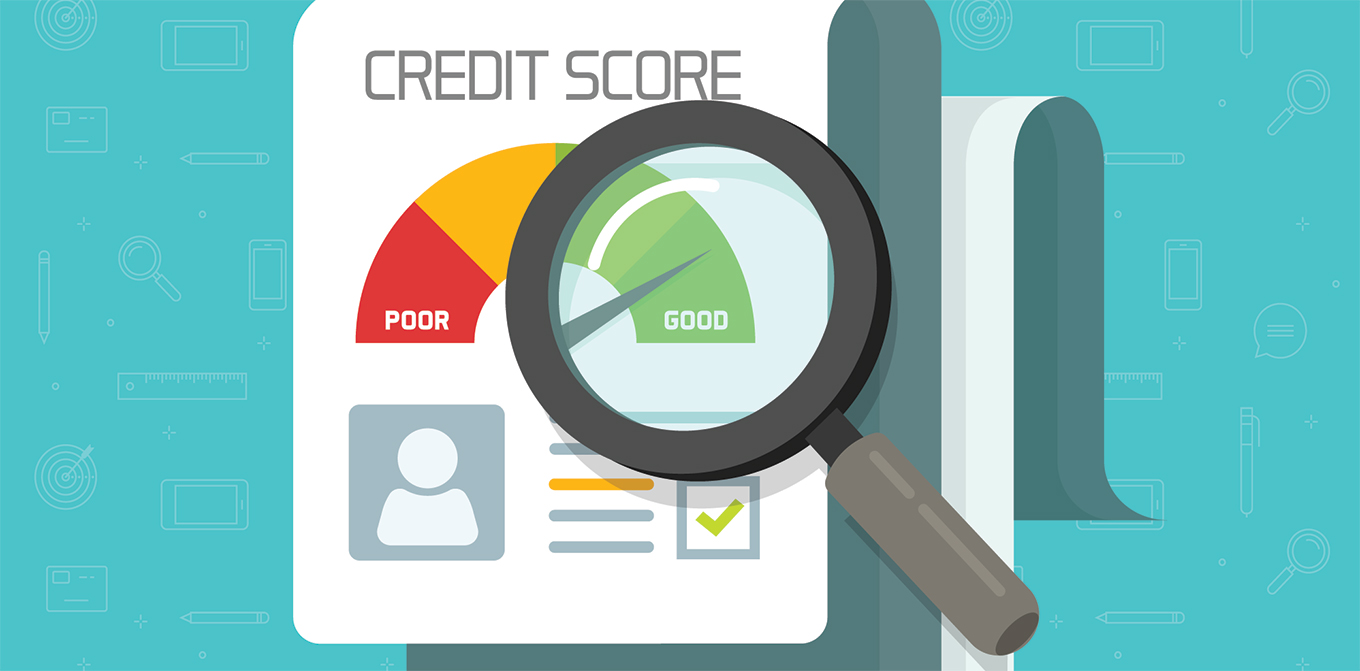3 reasons to review your credit report annually
If you're not reviewing a copy of your credit report on a regular basis, you're missing out on opportunities to improve your credit, spot signs of identity theft, and dispute errors that may negatively affect your credit score and creditworthiness.
It might sound boring, but it's a big deal. Your credit report is basically a grown-up version of a report card. It's what banks, lenders, and credit card companies use when deciding whether to extend credit to you. Moreover, insurance companies and potential landlords and employers may also request a copy of your credit report to get an idea of whether you follow through on your obligations.
You won't see your credit score on your credit report, but you may be able to obtain the score as a benefit through one or more of your credit cards or an online credit monitoring service. Still, your credit report contains everything else you need to know to monitor your credit, correct errors, and improve or maintain your credit score.
There's no need to be intimidated by pages of information on your credit report, either. Once you know what to look for, spotting inaccuracies and errors is easy, and correcting them is a straightforward process.
What's on my credit report?
If you have enough credit history, you probably have a credit report on file with each of the three major credit bureaus: Experian, TransUnion, and Equifax. Your credit reports from each bureau may not contain exactly the same information, but every credit report is divided into specific sections:
- Identifying information such as your name (and previous names used), address, and Social Security number
- Credit account information and payment history
- Inquiries from companies or other entities requesting your credit report
- Bankruptcies and judgments against you
- Collections accounts turned over to a collection agency
Getting a copy of your credit report is free
Obtaining a copy of your credit report is free at AnnualCreditReport.com. But there are additional ways to get a free copy of your credit report, too. For example, if you've been denied credit or insurance within the last 60 days, you can request a free copy of your credit report from the major credit bureau the potential creditor used to deny credit.
You can also get one free copy of your credit report if you:
- Are unemployed and plan to apply for unemployment within 60 days.
- Receive public welfare assistance.
- Believe your credit report contains inaccurate information due to fraud.
- Placed a fraud alert on your credit reports.
Even if you haven't been denied credit, you're allowed one report a year from each of the three major credit bureaus: Experian, TransUnion, and Equifax (receive up to six reports annually from Equifax through 2026). Due to the COVID-19 pandemic, however, you can get a free weekly credit report from each of the three major credit bureaus at AnnualCreditReport.com until April 20, 2022.
You can also get a free copy of your credit report from certain credit-focused websites that allow you to access and monitor your credit report 24/7.
3 things checking your report helps you do:
1. Verify accuracy
If you spot inaccurate information about an account or any judgments against you that negatively affect your credit, contact both the creditor and the reporting credit bureau to correct the error. If you see an unfamiliar account on your credit report, you can investigate and take measures such as placing a fraud alert or credit freeze on your credit to put a halt to further identity theft.
Keep in mind that if you received a temporary forbearance or deferral during the COVID-19 pandemic, the CARES Act requires the accounts to be reported as "current" on your credit report if the account was current before the accommodation. You'll need to verify accuracy on other sections of the report, too, such as your name and/or other names you may have used, address, and Social Security number.
2. Dispute errors
If you see an error on your identifying information, contact the credit bureau that issued the report to request a correction. If you spot an error in your account information, contact both the company that provided the information and the credit bureau that issued the credit report.
You can dispute errors online or by mail with all three major credit bureaus by filling out each bureau's dispute form. To make contacting the company that reported inaccurate information easier, you can use the sample dispute letter on the Consumer Financial Protection Bureau website. If the company corrects the error, it must notify the credit bureaus that it reported the inaccurate information to, so they can update your credit report.
3. Detect fraud
When you review your credit report, watch for unfamiliar accounts fraudulently opened under your name. Keep in mind that some retail credit card bank names may not show up as the store name on the report. Also, look for any "hard inquiries," requests for access to your credit report, from lenders that you didn't contact for credit.
If you suspect fraud on an unfamiliar account, contact the lender directly, asking them to confirm the account. If the lender can't confirm, ask them to send a letter to each credit bureau reporting that account, asking for the information to be removed. Also, place a free one-year fraud alert — which notifies creditors that they must take extra steps to verify your identity before extending credit— on your credit report with each credit bureau to prevent further fraud.
Take the next steps to improve your credit score
Once you know what's on your credit report, you might want to try to improve your credit score as quickly as possible by signing up with a credit repair company. With such companies, however, you could end up paying costly fees or even getting scammed by businesses making promises they may not be able to keep, such as guaranteeing your credit score will improve.
Also, beware of "new credit identity" scams promising a new Social Security number. These con artists may be selling stolen Social Security numbers and can snare you in their identity theft schemes, according to the Federal Trade Commission. Instead, meet with a credit counselor at a nonprofit credit counseling agency, which is typically free or charges only a nominal fee, to help you create a plan to repair your credit.
Then take steps to correct any errors that may negatively affect your credit score. And if your credit score is poor or fair, start making all payments on time to build a solid credit history, since negative payment history automatically drops off your credit report after seven years. Bankruptcy drops off after seven or ten years.
Because so many businesses use your credit report to make decisions about you, it's important that you routinely check your credit report each year. It will give you greater peace of mind and give you a benchmark of your creditworthiness.




